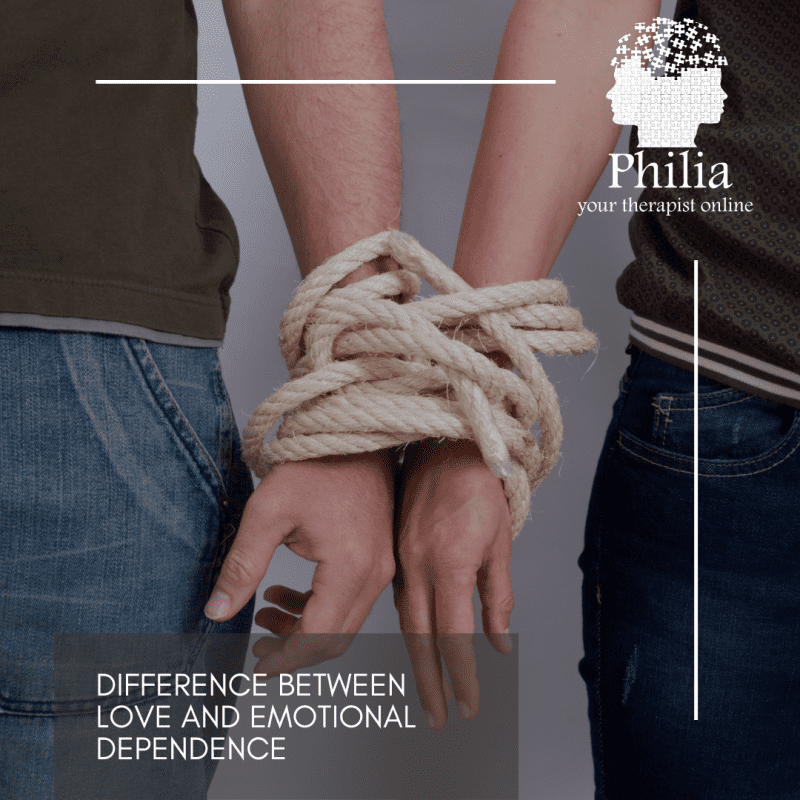Since we are little, we learn to relate and bond with people around us. When we bond from healthy love, there is a desire to love the other person, to enjoy their company, but also to have our own space and freedom. A healthy kind of love adds to each member of the couple from what the other has to offer; making it reciprocal, because in a healthy relationship both parties give and receive.
On the contrary, emotional dependence is the inability to get away from a bond that is harmful. You probably associate the term more with romantic relationships; however, it can also be found from mother to child(ren), between siblings, friends, in work relations, etc.
Emotional dependence can be unidirectional or bidirectional. In unidirectional relationships, both parties are not in a symmetrical position, that is, it occurs when one of the parties is placed above the other one and turns out to be too caring, cruel, controlling, and/or belittles or puts the other person down.
In bidirectional relationships there is a co-dependency. One of the parties can assume a maternal or paternal role, to take care of, or be the savior of the other person who needs to be cared for, thus ensuring that they won’t leave. While the other party allows themselves to be taken care of, avoiding responsibility in the relationship, and leaving it completely in the hands of the other.
Some of the symptoms of emotional dependence are constant feelings of inferiority, tendency to idealize the other, insecurity and difficulty in making decisions, fear of loneliness, putting oneself in the background, the need to always be with someone, and obsessing over the person you love. Although the causes of emotional dependence are multiple, the most frequent ones are related to experiences that the person had in childhood, or to having been in an abusive relationship in their teenage years or adult stage.
If any of the above resonates with you, you may be wondering, can a dependent love turn into a healthy one? The answer is yes, you can go from dependent love to healthy love, but both parties must be genuinely involved. If only one of the parties is motivated to change, then it will not work. Change must come from both.
In order to transform a dependent relationship into a healthy one, you will have to work on the following aspects:
- Improve communication. A couple is a team that has to work for mutual and individual well-being by learning to accompany each other.
- Begin to self-inquire and self-assess what values, principles and limits govern your life. This so that you don’t get lost in the other person and the relationship.
- Think and define what love is for you, based on your values and desires. Think about what you want, but also about what you are willing to offer.
- Strengthen your self-esteem, work on your insecurities, and learn to value yourself, accept yourself to be able to relate from a position of equality.
- Care for and nurture your personal goals, as well as your relationships with others, so that your life does not revolve around just one person.
- Review your beliefs and expectations about love.
Remember that the most important bond is the one you have with yourself. Therefore, working on yourself will improve your skills and abilities to relate more satisfactorily and in a healthier way with yourself and with others. Become aware of what is happening in your life, don’t be afraid and take that big step to start therapy if you need it. At Philia we have mental health professionals who can help you and your loved ones embark on a path to personal development. Thanks for reading us once again, we look forward to seeing you in the next article!


Leave A Comment